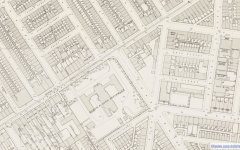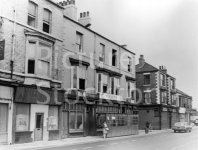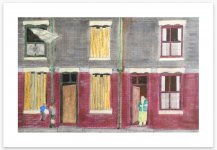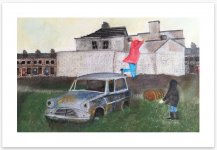My parents lived in Cannon Street. I know its a bit of a cliche but I remember them telling me there was a strong sense of community in those days which is not as common now. Nobody would steal from you, because the neighbours were honest as the day is long, and you probably didn't have anything to steal anyway!
I walk through the town centre now and miss the buildings of old, they had character. The old characters of the town are long gone too. It is not the same town I remember in the 1960s and onwards. I know we cannot halt progression and times move on but I find myself being very nostalgic and sentimental more these days.
I think Philip Larkin put it beautifully in one of his poems:
'Going, Going'
And that will be England gone,
The shadows, the meadows, the lanes,
The guildhalls the carved choirs,
There'll be books it will linger on,
In galleries but all that remains for us,
Will be concrete and tyres'




